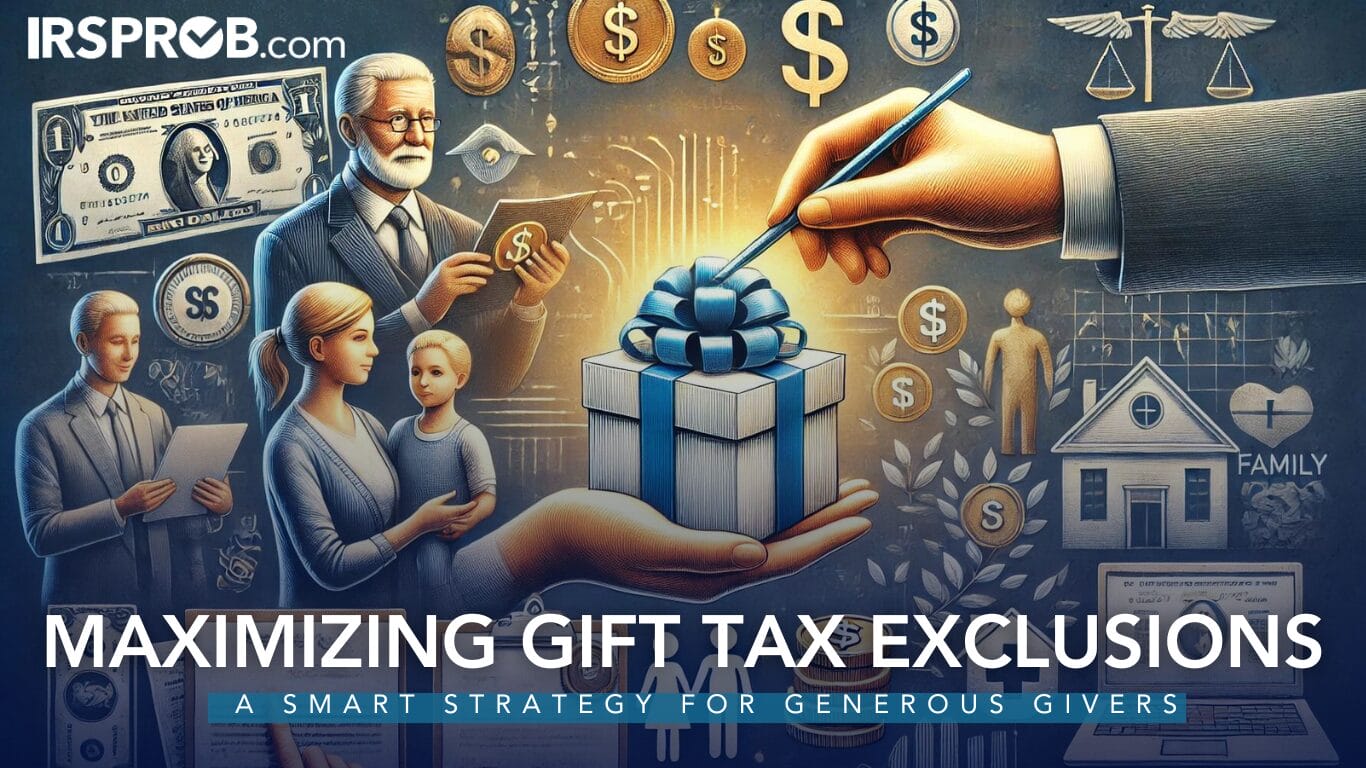
When it comes to planning your estate and minimizing tax burdens, the federal gift tax exclusion offers a valuable opportunity to transfer wealth to your loved ones without triggering tax consequences. For 2024, the annual gift tax exclusion allows you to give up to $18,000 per recipient without any adverse federal gift or estate tax impact. But did you know that generous parents and grandparents can go even further with their giving? By strategically using additional exclusions for tuition and medical expenses, you can maximize your gifting potential while staying within the bounds of the tax code.
Understanding the Federal Gift Tax Exclusion
The federal gift tax exclusion is a powerful tool that lets you make tax-free gifts up to a specified limit each year. For 2024, this limit is $18,000 per recipient. This means you can give multiple recipients up to $18,000 each without triggering any gift tax or impacting your lifetime estate tax exemption.
But the benefits don’t stop there. In addition to the annual exclusion, the tax code provides two additional exclusions that allow you to make even larger tax-free gifts under specific circumstances. These exclusions apply to tuition payments made directly to educational institutions and medical expenses paid directly to healthcare providers.
Tuition Exclusion: A Gift for Education
One of the most effective ways to support your children or grandchildren is by paying for their education. The tuition exclusion allows you to pay for a relative’s college tuition or other qualifying educational expenses without the payment counting against your annual gift tax exclusion. To qualify for this exclusion, the payment must be made directly to the educational institution.
This exclusion is broad in its application. It covers not only college and university tuition but also tuition for primary, secondary, and preparatory schools. In some cases, even tuition for non-traditional educational programs, such as martial arts schools, yoga instruction academies, and wilderness camping and survival programs, has been approved.
However, it’s important to note that this exclusion only applies to tuition. Other educational expenses, such as room and board, books, and supplies, do not qualify for this exemption and would need to be covered under the annual gift tax exclusion.
Medical Expenses Exclusion: A Gift for Health
Another way to maximize your tax-free giving is by covering medical expenses for your loved ones. Under the tax code, payments made directly to a healthcare provider for qualified medical expenses are exempt from gift tax. These expenses can include costs for the diagnosis, cure, mitigation, treatment, or prevention of disease, as well as transportation to and from medical care.
This exclusion is particularly beneficial if you are supporting a relative with significant medical needs. It’s also worth noting that if you itemize your deductions, you may be able to deduct these qualified medical expenses on your tax return, provided the total exceeds 7.5% of your adjusted gross income (AGI).
Putting It All Together
By combining the federal gift tax exclusion with the tuition and medical expense exclusions, you can significantly increase the amount you give to your loved ones without incurring any gift tax liability. For example, in a single year, you could give a grandchild $18,000 in cash, pay their college tuition directly to the university, and cover their medical expenses—all without triggering any gift tax.
For business owners and high-net-worth individuals, this strategy can be an essential part of estate planning, helping to reduce the size of your taxable estate while providing substantial support to your family members.
Final Thoughts
The federal gift tax exclusion, along with the additional exemptions for tuition and medical expenses, offers a flexible and tax-efficient way to transfer wealth to your loved ones. By understanding and leveraging these rules, you can maximize your giving potential while minimizing your tax burden. As always, careful planning and consultation with a tax advisor are key to ensuring that your gifts are structured in the most beneficial way possible.







